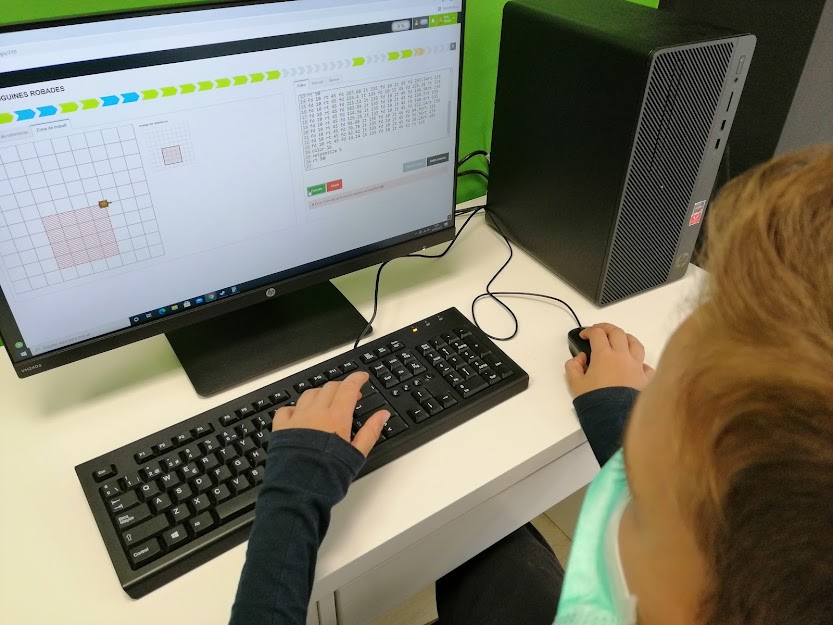Autumn is almost here and both school and after-school programs are back. All extracurricular activities have a positive impact on the social and cognitive development of children, but there are many different activities and the most important thing is to choose one thanks to which children enjoy and have fun while working on skills that can go further on what they learn at school. In this sense, after-school coding and robotics programs are a cognitive activity in which children learn transferable skills and also work on one of the most important technical skills for their future: programming.
After the arrival of COVID19, we have seen how the digitization process has accelerated during the last 18 months, as well as the arrival of the 4th Industrial Revolution, a new reality to which we will have to adapt quickly. And to do so, it will be necessary for us to acquire technical skills such as programming, but also social and problem-solving skills, among others. Thus, STEAM education is becoming more and more important within educational field and is gradually being incorporated into schools.
Computational thinking is the most important skill that we can work with youngers to prepare them for the future. It is a set of techniques that we work through programming and robotics, but which are aimed at solving problems of any kind and not only related to technology. These include decomposition, pattern recognition, abstraction and algorithmic design.
Creativity is also one of the most valued skills. Programming is often thought of as an activity which is related to mathematics and science and totally unrelated to imagination or creativity. However, the job of a computer programmer is to find solutions to problems or create new solutions that improve people’s lives. Programming is a tool that helps them developing their ideas and projects, that’s why learning to code and STEAM education foster children’s creativity and encourage them to experiment and create whatever they can imagine.
Thirdly, we talk a lot about STEAM because, although Codelearn focuses mainly on coding, this is precisely a tool that helps us to reinforce other school subjects. Through programming we can also work on science, arts, mathematics, languages and almost everything students can learn at school. For example, we could create and program a calculation game (coding and mathematics), with total freedom to design it at a visual level (arts) and that it was written in a foreign language.
In this sense, coding is often a project work, something that also helps us to break the myth that programming is an individual activity only. Coding after-school programs allow children to improve communication, teamwork, leadership and many other social skills that are increasingly important both on a professional and a personal level. And we always try to work on it through gamification in order to adapt the activity to the ages of children, who beyond learning and acquiring new knowledge have to enjoy their childhood and have fun with their friends.

